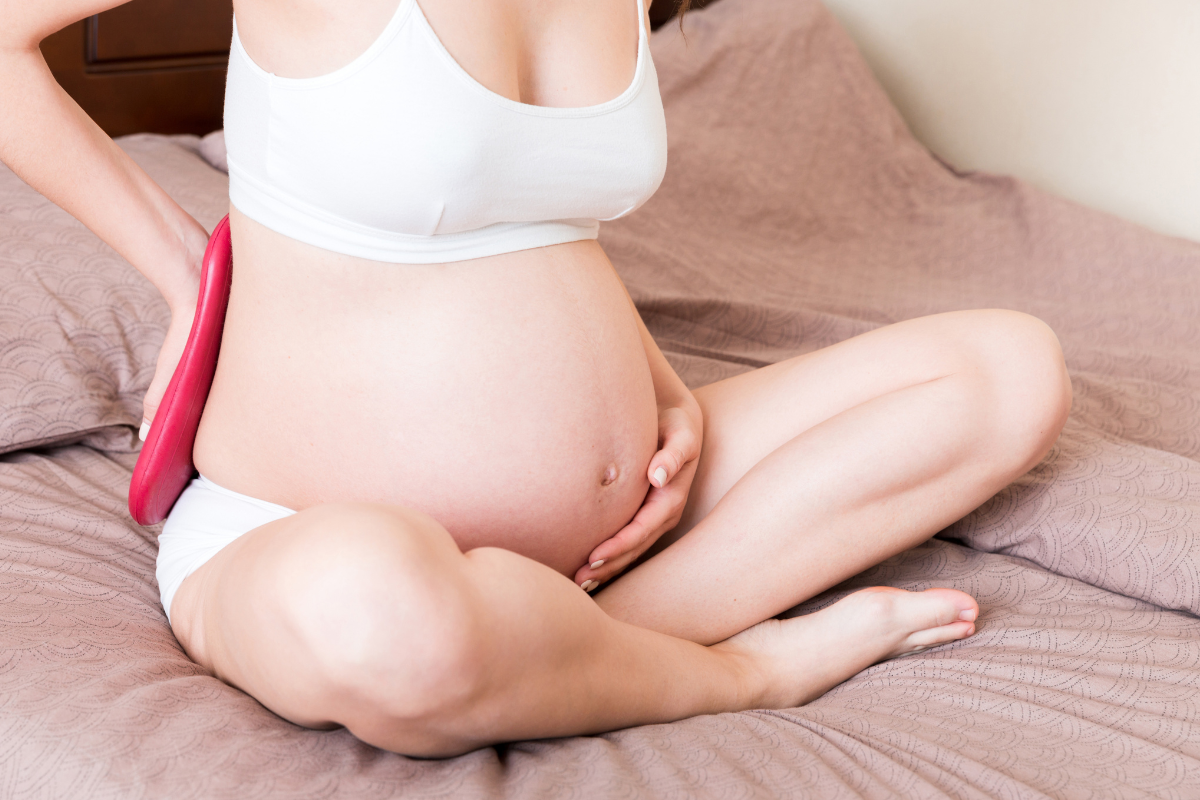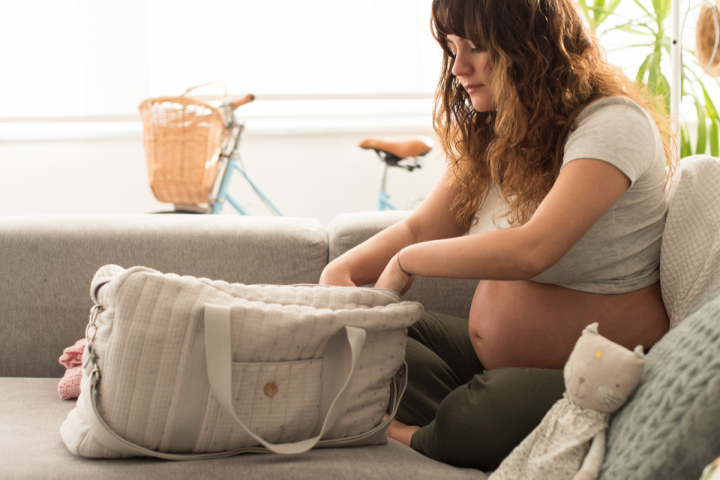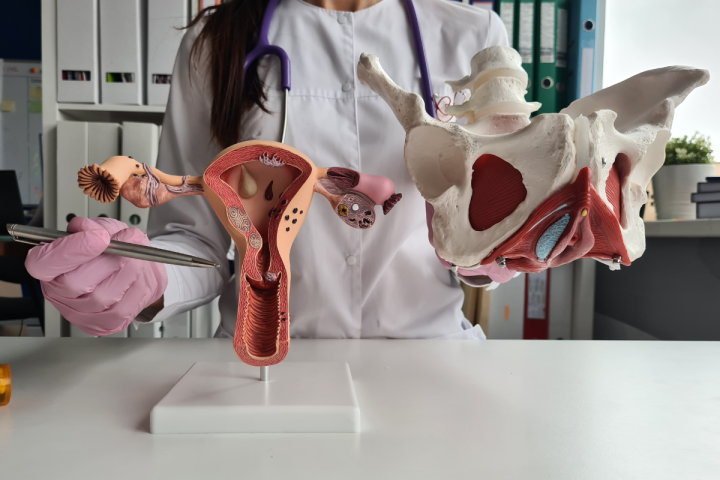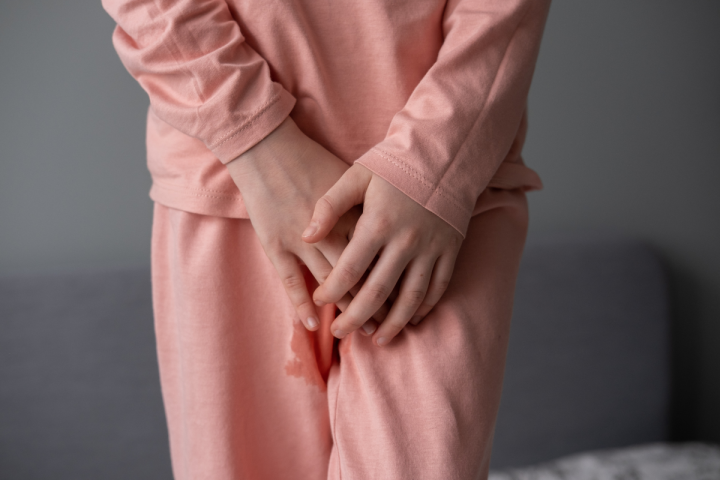Pregnancy is a special time full of joy and anticipation of the arrival of a baby. However, it is also a period in which the female body prepares itself for the role of mother. These changes can be fascinating, but they are often accompanied by discomfort. One of the most common problems is back pain, which even affects 80% pregnant women. What is this pain caused by and how can it be managed? Although it may resemble sciatica pain, its source is different. Read on to find out more about this problem and effective methods to alleviate and prevent it.
Back pain in pregnancy - causes
- Back pain during pregnancy can have a variety of causes, but one of the most common is strain caused by a growing tummy. This type of pain can be disruptive and hinder daily functioning, so it is important for mums-to-be to know how to manage it.
- Back pain in pregnancy can occur either at the beginning, middle or end of pregnancy. However, it is important to note that back pain occurring in the first trimester has completely different causes than that occurring in the later stages of pregnancy.
- As the abdomen grows, the lumbar region of the spine becomes unphysiologically bent forward, leading to abnormal loading on the individual vertebrae. In addition, the body's centre of gravity changes and the woman has to maintain her balance by pushing her abdomen forward and tilting her shoulders back. This posture leads to excessive tension in the spinal muscles and the development of pain.
- In addition, spinal pain during pregnancy is caused by hormonal changes in the woman's body. An increase in relaxin levels leads to relaxation of the hip and sacroiliac joints, which can also contribute to spinal pain.
Back pain in pregnancy and other ailments
In pregnancy, back pain can also be related to a urinary tract infection, which is quite common during this period. The uterus, growing as the pregnancy progresses, can put pressure on the ureters, obstructing the outflow of urine and promoting urine stasis. This, in turn, can lead to urinary tract infection, manifested by dilatation of the renal pelvis and renal calyxes. It is therefore important that any pregnant woman experiencing back pain should first consult her doctor and have a urine test with culture to rule out or confirm an infection. If the infection is confirmed, antibiotic treatment may be necessary, as an untreated urinary tract infection can put both mother and baby at risk.
Symptoms
Low back pain in the lower back can be the result of weak and inefficient muscles and ligamentous laxity. Symptoms can occur on one or both sides of the spine. They may be located only in the back region or radiate to the lower limb. In that case, however, they are usually limited to the level of the knee. This is an important consideration when diagnosing. Mainly because this pain may resemble the symptoms of sciatica or piriformis muscle syndrome, but the causes are different. Problems from unstable sacroiliac joints often occur during prolonged walking, standing or lying on a hard surface. Despite similar symptoms, the diagnosis and treatment of these conditions require an individual approach based on a thorough history and diagnostic tests.
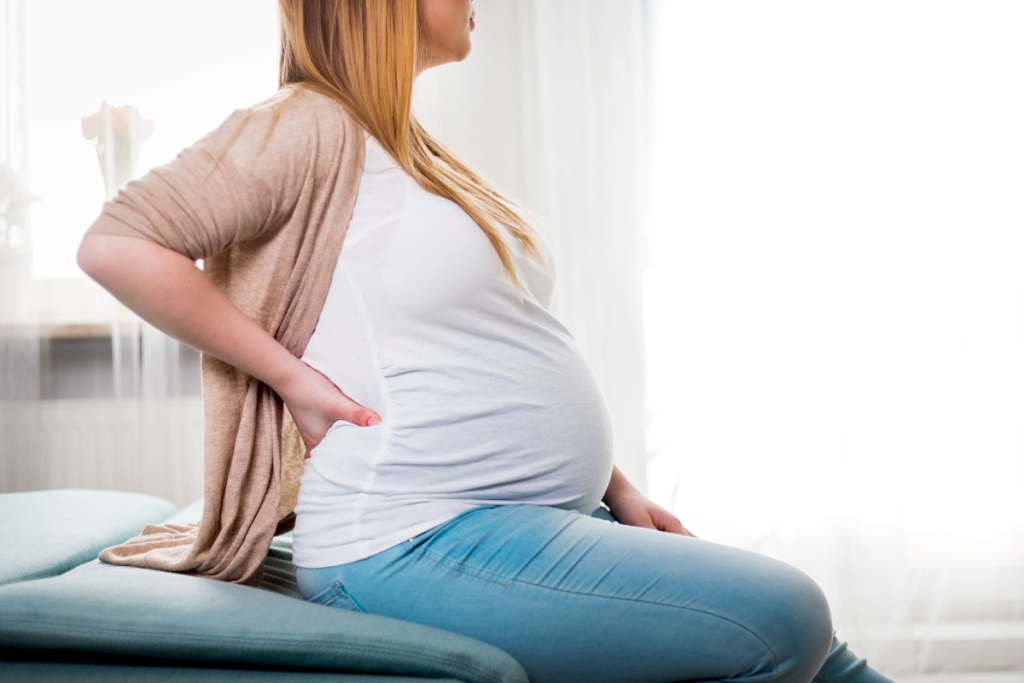
Back pain in pregnancy - how to deal with it?
An important aspect of back pain prevention during pregnancy is weight control! Women who put on a significant amount of weight are more likely to complain of back pain. On the other hand, those ladies who adhere to healthy eating recommendations and take care of their weight experience back pain less frequently as a result of less strain on the spine.
In addition, wearing flat-heeled shoes instead of high-heeled shoes helps to reduce pressure on the spine, which also provides relief. It is a good idea to avoid standing for long periods of time, as this can put additional strain on the spine.
Pregnant people should also avoid excessive exercise, which can exacerbate back pain. However, walking and special exercises for pregnant women, tailored to each woman's individual needs, are recommended. Massage can be helpful in relieving pain, but it is important to remember that doing it incorrectly can make it worse. Additionally, swimming can provide relief as the muscles relax, reducing the strain on the spine. If the pain is severe, always consult your doctor, who may prescribe a suitable painkiller, such as paracetamol, which is safe during pregnancy.
When should pain be of particular concern?

If you are experiencing back pain during pregnancy and at the same time other symptoms such as:
- high body temperature,
- abdominal pain,
- blotting,
- uterine contractions,
- bleeding or vomiting,
consult your doctor immediately. These symptoms could signal an infection, miscarriage or premature birth, so a quick response is crucial for your safety and the health of your baby!
How do we manage back pain at MTS?
Manual therapy, acupuncture i kinesiotaping Are effective methods for relieving back pain during pregnancy. Manual therapy, using gentle manipulation, can help to relax tense muscles and improve blood circulation, helping to reduce discomfort. Acupuncture, based on the gentle pricking of selected points on the body, can help reduce pain by stimulating the nervous and endocrine systems. And kinesiotaping, which involves the application of elastic bands to the skin, can help maintain posture and reduce muscle tension, providing relief from back pain. These therapies are safe for pregnant women, but it is always advisable to consult your doctor before starting any new therapy.

